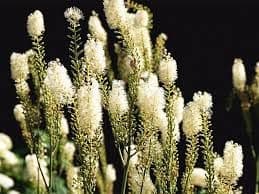Painful Intercourse (Dyspareunia)
What is Dyspareunia?
Dyspareunia refers to pain that occurs in the genital area during or after intercourse. The pain can be felt on the surface of the vulva, at the vaginal entrance, or deep within the pelvis. This condition can lead to emotional distress, anxiety around sexual activity, and strain on intimate relationships. It’s essential to identify the underlying causes of dyspareunia and explore both conventional and natural remedies to manage the condition.
Symptoms of Dyspareunia
Painful intercourse can present in various ways depending on the underlying cause. Common symptoms of dyspareunia include:
- Pain or discomfort during penetration: Pain may occur at the vaginal opening, especially during initial penetration.
- Deep pelvic pain: Some women experience pain deep inside the pelvis during thrusting or after intercourse.
- Burning or aching sensation: A burning feeling may persist in the genital area after sexual activity.
- Tightness or muscle spasms: The vaginal muscles may involuntarily contract or spasm, leading to pain.
- Fear or anxiety about sex: Due to recurring pain, some women may experience psychological distress or avoidance of sexual activity.
The type, location, and severity of the pain can vary depending on the cause and may fluctuate over time.
What Causes Dyspareunia?
Dyspareunia can have multiple physical and psychological causes. It’s important to identify the root cause to determine the most effective treatment. Some common causes include:
- Vaginal dryness: Lack of natural lubrication, often due to low estrogen levels (as seen during menopause or postpartum), can make intercourse painful. Hormonal changes during breastfeeding or the use of certain birth control pills can also contribute to dryness.
- Vaginal or pelvic infections: Conditions such as yeast infections, urinary tract infections (UTIs), or sexually transmitted infections (STIs) can cause inflammation and pain during intercourse.
- Vulvodynia: Chronic pain in the vulva can lead to surface-level discomfort during sexual activity. This condition often causes burning or irritation around the vaginal entrance.
- Vaginismus: This condition involves the involuntary tightening or spasming of the vaginal muscles, making penetration difficult or painful.
- Endometriosis: Women with endometriosis, where the tissue that normally lines the uterus grows outside it, often experience deep pelvic pain during intercourse.
- Pelvic floor dysfunction: Weak or tight pelvic floor muscles can lead to pain during sex. This is common after childbirth or surgery.
- Emotional or psychological factors: Anxiety, stress, or past trauma (such as sexual abuse) can contribute to dyspareunia. Emotional health plays a significant role in sexual well-being.
The Connection Between Hormonal Health and Painful Intercourse
Hormonal imbalances, particularly involving estrogen, are a significant contributor to dyspareunia. Estrogen helps maintain vaginal elasticity, moisture, and blood flow. When estrogen levels decline, as seen during menopause, perimenopause, or after childbirth, the vaginal tissues become thinner, less elastic, and drier, leading to painful intercourse.
Women who take certain hormonal contraceptives or undergo hormonal therapies may also experience changes in vaginal lubrication. Addressing hormonal imbalances through lifestyle adjustments, natural remedies, or medical treatments can help alleviate pain during sex.
Natural and Herbal Remedies for Managing Dyspareunia
In addition to conventional treatments, there are several natural management strategies and herbal remedies that can help manage the symptoms of dyspareunia and improve sexual comfort.
1. Dietary Adjustments
- Hydration and healthy fats: Staying well-hydrated and consuming healthy fats, such as those found in avocados, olive oil, and fatty fish, can help support natural lubrication.
- Phytoestrogens: Foods rich in phytoestrogens, such as soy and flaxseeds, may help mimic estrogen and improve vaginal lubrication in women experiencing hormonal imbalances.
- Anti-inflammatory foods: Eating a diet rich in anti-inflammatory foods like leafy greens, berries, turmeric, and ginger can help reduce inflammation and discomfort in the pelvic region.
2. Herbal Remedies
Several herbs are known to support vaginal health and hormonal balance, providing relief from painful intercourse:
- Black Cohosh: Often used for menopausal symptoms, black cohosh can help balance hormones and relieve vaginal dryness.
- Aloe Vera: Aloe vera gel can be used topically as a natural lubricant to soothe irritation and provide moisture during sex.
- Calendula: This herb has anti-inflammatory and healing properties, making it useful for soothing vaginal irritation or minor infections.
- Red Clover: Rich in phytoestrogens, red clover may help improve vaginal lubrication and reduce dryness, especially for menopausal women.
3. Supplements and Nutrients
- Vitamin E: Applying vitamin E topically or taking it as a supplement can help improve vaginal tissue health and reduce dryness.
- Omega-3 fatty acids: Omega-3s support overall inflammation reduction and may help maintain healthy vaginal tissues.
- Probiotics: Probiotic supplements or foods rich in probiotics, such as yogurt and kefir, can support a healthy vaginal flora and reduce the risk of infections that may cause dyspareunia.
Managing Dyspareunia: Lifestyle and Medical Treatments
Beyond natural remedies, several lifestyle changes and medical treatments can effectively manage dyspareunia and improve sexual comfort:
- Pelvic floor therapy: Working with a pelvic floor therapist can help strengthen or relax the pelvic muscles, reducing pain during intercourse.
- Vaginal lubricants and moisturizers: Using water-based lubricants can provide immediate relief from dryness during intercourse, while vaginal moisturizers can help maintain hydration over time.
- Hormone therapy: Low-dose estrogen creams, rings, or tablets may help restore vaginal moisture and elasticity in postmenopausal women experiencing dyspareunia due to low estrogen levels.
- Psychological counseling: If emotional factors such as anxiety or past trauma are contributing to painful intercourse, counseling or therapy may help address the underlying issues and improve sexual well-being.
- Regular sexual activity: Engaging in regular sexual activity or self-stimulation can help maintain vaginal elasticity and blood flow, reducing the likelihood of dyspareunia.
Takeaway: Addressing Painful Intercourse Naturally
Dyspareunia, or painful intercourse, can have a profound impact on a woman’s quality of life, but it’s a condition that can be managed with the right combination of treatments. Whether through lifestyle changes, dietary adjustments, natural herbal remedies like black cohosh and aloe vera, or medical treatments such as hormone therapy or pelvic floor therapy, there are various options for relief.
If you experience ongoing pain during intercourse, consulting with a healthcare provider to uncover the underlying cause and develop a personalized treatment plan is key to finding relief and improving your sexual health.




